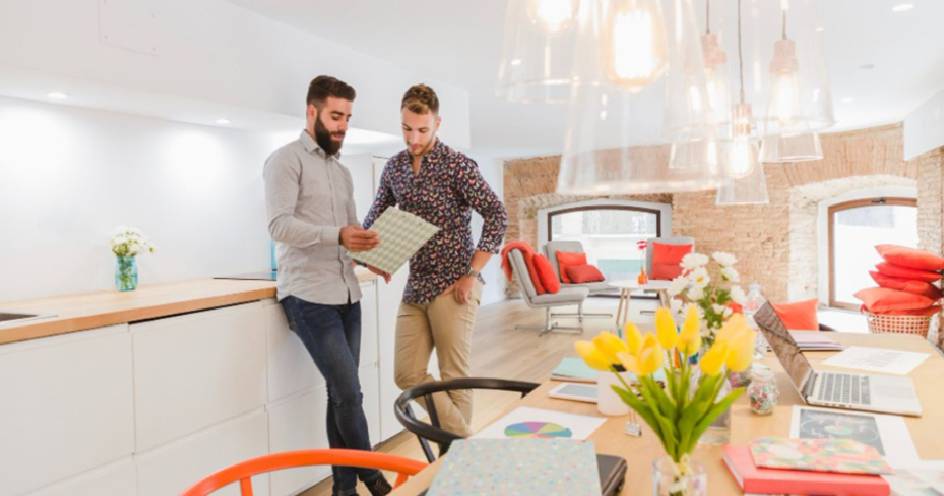The Role of Furniture in Branding: Showcasing Your Company's Identity
 In the competitive business landscape, effective branding plays a crucial role in differentiating a company from its competitors and creating a unique identity. While traditional branding strategies often focus on logos, colors, and marketing campaigns, one often overlooked element is the role of furniture in establishing a brand image. This article will explore the significance of furniture branding and provide some unique furniture branding ideas to help companies showcase their identity and create a lasting impression.
In the competitive business landscape, effective branding plays a crucial role in differentiating a company from its competitors and creating a unique identity. While traditional branding strategies often focus on logos, colors, and marketing campaigns, one often overlooked element is the role of furniture in establishing a brand image. This article will explore the significance of furniture branding and provide some unique furniture branding ideas to help companies showcase their identity and create a lasting impression.The Power of Furniture Branding
When customers enter a physical space, such as an office, store, or restaurant, the furniture they encounter immediately conveys a message about the brand. Furniture can evoke emotions, set the tone, and communicate a company's values, culture, and overall brand identity. It goes beyond mere functionality and aesthetics; it becomes an integral part of the brand experience.Creating a Unique Furniture Brand
To stand out in a crowded market, it is essential to develop a unique furniture brand that resonates with your target audience. Here are some ideas to consider:
a) Consistency: Ensure that your furniture aligns with your brand's overall style and message. Whether it's minimalistic, modern, or rustic, consistency in design helps reinforce your brand identity and makes it easily recognizable.
b) Customization: Consider customizing furniture pieces to reflect your brand's personality. This could involve incorporating your logo, using brand colors, or designing furniture that reflects the essence of your brand story. Unique and personalized furniture pieces leave a lasting impression on customers.
c) Collaboration: Partner with designers, artisans, or manufacturers who understand your brand's values and can help bring your vision to life. Collaborating with experts in the field can result in furniture that is truly distinctive and reflective of your brand.
d) Sustainable Materials: In today's environmentally conscious world, using sustainable materials for your furniture can be a powerful brand statement. Consider incorporating reclaimed wood, recycled materials, or eco-friendly fabrics into your furniture design, demonstrating your commitment to sustainability.
Furniture Branding in Different Industries
a) Office Spaces: In a corporate setting, furniture can reflect professionalism, innovation, and the company's culture. Ergonomic furniture that promotes employee well-being can communicate a company's dedication to employee satisfaction. Collaborative workspaces with modular furniture can showcase a focus on creativity and teamwork.b) Retail Stores: Retail spaces require furniture that complements the products and enhances the shopping experience. For example, a boutique clothing store can use vintage-inspired furniture to create a cozy and nostalgic atmosphere, while a high-end luxury brand might opt for sleek and modern furniture to evoke a sense of exclusivity and sophistication.
c) Restaurants and Cafes: In the food industry, furniture plays a crucial role in creating a specific ambiance and attracting the target audience. Rustic, farmhouse-style furniture can create a cozy and homely atmosphere, while minimalist furniture with clean lines can convey a sense of modernity and sophistication.
The Impact of Furniture Branding
a) Memorability: When furniture is thoughtfully designed and aligned with a brand's identity, it becomes memorable. Customers are more likely to remember and talk about a unique furniture brand, generating positive word-of-mouth and enhancing brand recognition.b) Customer Experience: Furniture can significantly impact the overall customer experience. Comfortable seating, well-designed display units, and inviting reception areas can make customers feel valued and at ease, leading to increased customer satisfaction and loyalty.
c) Social Media Appeal: Unique and eye-catching furniture can become a visual focal point, enticing customers to take photos and share them on social media. This organic user-generated content helps generate buzz, increase brand visibility, and attract new customers.
Conclusion:
In today's competitive business landscape, creating a strong brand identity is crucial for long-term success. While many companies focus on traditional branding strategies, the role of furniture in establishing and showcasing a brand's identity should not be underestimated. Furniture goes beyond mere functionality and aesthetics; it becomes an integral part of the brand experience, evoking emotions, setting the tone, and communicating a company's values and culture.By developing a unique furniture brand, companies can differentiate themselves from competitors and create a lasting impression on customers. Consistency, customization, collaboration, and sustainable materials are key considerations when designing furniture that reflects a brand's personality and story. Moreover, furniture branding extends to various industries, such as offices, retail stores, and restaurants, where the right furniture choices can enhance the overall experience and attract the target audience.
The impact of furniture branding is far-reaching. Memorable furniture designs contribute to increased brand recognition and positive word-of-mouth. The customer experience is greatly influenced by well-designed and comfortable furniture, leading to higher satisfaction and loyalty. Furthermore, unique furniture can become a visual focal point, capturing attention on social media and generating organic user-generated content that amplifies brand visibility.
In conclusion, furniture branding is a powerful tool for showcasing a company's identity. By strategically designing and incorporating furniture that aligns with a brand's values, businesses can create a distinctive and memorable brand experience for their customers. Whether in an office, retail store, or restaurant, the right furniture choices can leave a lasting impression and contribute to the overall success of a brand. So, embrace the role of furniture in branding and leverage its potential to elevate your company's identity in the market.
